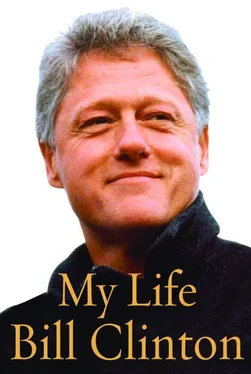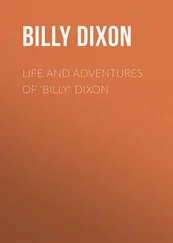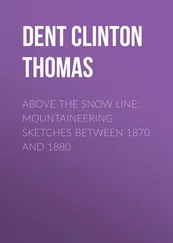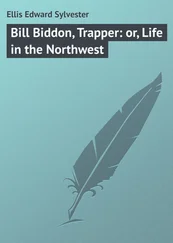I liked living on the farm, feeding the animals, and moving among them, until one fateful Sunday. Daddy had several members of his family out to lunch, including his brother Raymond and his children. I took one of Raymond’s daughters, Karla, out into the field where the sheep were grazing. I knew there was one mean ram we had to avoid, but we decided to tempt fate, a big mistake. When we were about a hundred yards away from the fence, the ram saw us and started to charge. We started running for the fence. Karla was bigger and faster and made it. I stumbled over a big rock. When I fell I could see I wasn’t going to make the fence before the ram got to me, so I retreated to a small tree a few feet away in the hope I could keep away from him by running around the tree until help came. Another big mistake. Soon he caught me and knocked my legs out from under me. Before I could get up he butted me in the head. Then I was stunned and hurt and couldn’t get up. So he backed up, got a good head start, and rammed me again as hard as he could. He did the same thing over and over and over again, alternating his targets between my head and my gut. Soon I was pouring blood and hurting like the devil. After what seemed an eternity my uncle showed up, picked up a big rock, and threw it hard, hitting the ram square between the eyes. The ram just shook his head and walked off, apparently unfazed. I recovered, left with only a scar on my forehead, which gradually grew into my scalp. And I learned that I could take a hard hit, a lesson that I would relearn a couple more times in my childhood and later in life. A few months after we moved to the farm, both my folks were going to town to work. Daddy gave up on being a farmer and took a job as a parts manager for Uncle Raymond’s Buick dealership, while Mother found more anesthesia work in Hot Springs than she could handle. One day, on the way to work, she picked up a woman who was walking to town. After they got acquainted, Mother asked her if she knew anyone who would come to the house and look after me while she and Daddy were at work. In one of the great moments of good luck in my life, she suggested herself. Her name was Cora Walters; she was a grandmother with every good quality of an old-fashioned countrywoman. She was wise, kind, upright, conscientious, and deeply Christian. She became a member of our family for eleven years. All her family were good people, and after she left us, her daughter Maye Hightower came to work for Mother and stayed thirty more years until Mother died. In another age, Cora Walters would have made a fine minister. She made me a better person by her example, and certainly wasn’t responsible for any of my sins, then or later. She was a tough old gal, too. One day she helped me kill a huge rat that was hanging around our house. Actually, I found it and she killed it while I cheered. When we moved out to the country, Mother was concerned about my going to a small rural school, so she enrolled me in St. John’s Catholic School downtown, where I attended second and third grade. Both years my teacher was Sister Mary Amata McGee, a fine and caring teacher but no pushover. I often got straight As on my six-week report card and a C in citizenship, which was a euphemism for good behavior in class. I loved to read and compete in spelling contests, but I talked too much. It was a constant problem in grade school, and as my critics and many of my friends would say, it’s one I never quite got over. I also got in trouble once for excusing myself to go to the bathroom and staying away too long during the daily rosary. I was fascinated by the Catholic Church, its rituals and the devotion of the nuns, but getting on my knees on the seat of my desk and leaning on the back with the rosary beads was often too much for a rambunctious boy whose only church experience before then had been in the Sunday school and the summer vacation Bible school of the First Baptist Church in Hope. After a year or so on the farm, Daddy decided to move into Hot Springs. He rented a big house from Uncle Raymond at 1011 Park Avenue, in the east end of town. He led Mother to believe he’d made a good deal for it and had bought the house with his income and hers, but even with their two incomes, and with housing costs a considerably smaller part of the average family’s expenses than now, I can’t see how we could have afforded it. The house was up on a hill; it had two stories, five bedrooms, and a fascinating little ballroom upstairs with a bar on which stood a big rotating cage with two huge dice in it. Apparently the first owner had been in the gambling business. I spent many happy hours in that room, having parties or just playing with my friends.
The exterior of the house was white with green trim, with sloping roofs over the front entrance and the two sides. The front yard was terraced on three levels with a sidewalk down the middle and a rock wall between the middle and ground levels. The side yards were small, but large enough for Mother to indulge her favorite outdoor hobby, gardening. She especially loved to grow roses and did so in all her homes until she died. Mother tanned easily and deeply, and she got most of her tan while digging dirt around her flowers in a tank top and shorts. The back had a gravel driveway with a four-car garage, a nice lawn with a swing set, and, on both sides of the driveway, sloping lawns that went down to the street, Circle Drive.
We lived in that house from the time I was seven or eight until I was fifteen. It was fascinating to me. The grounds were full of shrubs, bushes, flowers, long hedges laced with honeysuckle, and lots of trees, including a fig, a pear, two crab apples, and a huge old oak in the front. I helped Daddy take care of the grounds. It was one thing we did do together, though as I got older, I did more and more of it myself. The house was near a wooded area, so I was always running across spiders, tarantulas, centipedes, scorpions, wasps, hornets, bees, and snakes, along with more benign creatures like squirrels, chipmunks, blue jays, robins, and woodpeckers. Once, when I was mowing the lawn, I looked down to see a rattlesnake sliding along with the lawn mower, apparently captivated by the vibrations. I didn’t like the vibes, so I ran like crazy and escaped unscathed. Another time I wasn’t so lucky. Daddy had put up a huge three-story birdhouse for martins, which nest in groups, at the bottom of the back driveway. One day I was mowing grass down there and discovered it had become a nesting place not for martins but for bumblebees. They swarmed me, flying all over my body, my arms, my face. Amazingly, not one of them stung me. I ran off to catch my breath and consider my options. Mistakenly, I assumed they had decided I meant them no harm, so after a few minutes I went back to my mowing. I hadn’t gone ten yards before they swarmed me again, this time stinging me all over my body. One got caught between my belly and my belt, stinging me over and over, something bumblebees can do that honeybees can’t. I was delirious and had to be rushed to the doctor, but recovered soon enough with another valuable lesson: tribes of bumblebees give intruders one fair warning but not two. More than thirty-five years later, Kate Ross, the five-year-old daughter of my friends Michael Ross and Markie Post, sent me a letter that said simply: “Bees can sting you. Watch out.” I knew just what she meant.
My move to Hot Springs gave my life many new experiences: a new, much larger and more sophisticated city; a new neighborhood; a new school, new friends, and my introduction to music; my first serious religious experience in a new church; and, of course, a new extended family in the Clinton clan.
The hot sulfur springs, for which the city is named, bubble up from below ground in a narrow gap in the Ouachita Mountains a little more than fifty miles west and slightly south of Little Rock. The first European to see them was Hernando de Soto, who came through the valley in 1541, saw the Indians bathing in the steaming springs, and, legend has it, thought he had discovered the fountain of youth. In 1832, President Andrew Jackson signed a bill to protect four sections of land around Hot Springs as a federal reservation, the first such bill Congress ever enacted, well before the National Park Service was established or Yellowstone became our first national park. Soon more hotels sprung up to house visitors. By the 1880s, Central Avenue, the main street, snaking a mile and a half or so through the gap in the mountains where the springs were, was sprouting beautiful bathhouses as more than 100,000 people a year were taking baths for everything from rheumatism to paralysis to malaria to venereal disease to general relaxation. In the first quarter of the twentieth century, the grandest bathhouses were built, more than a million baths a year were taken, and the spa city became known around the world. After its status was changed from federal reservation to national park, Hot Springs became the only city in America that was actually in one of our national parks.
Читать дальше












